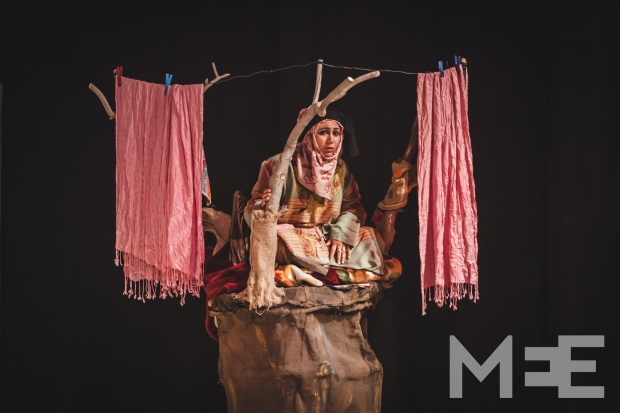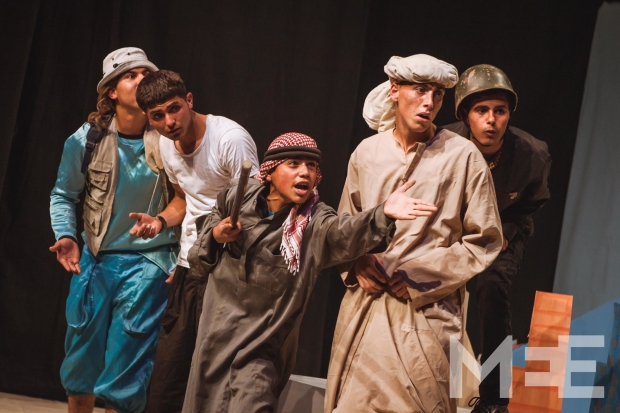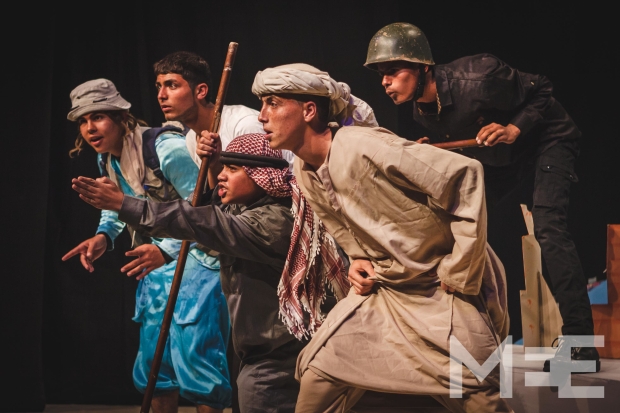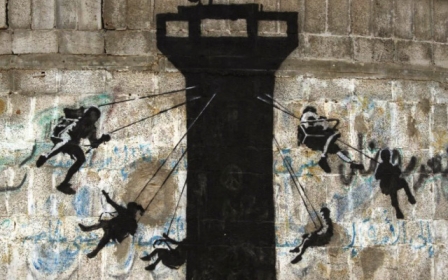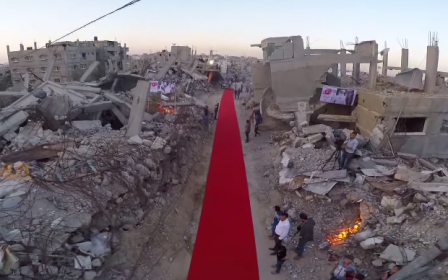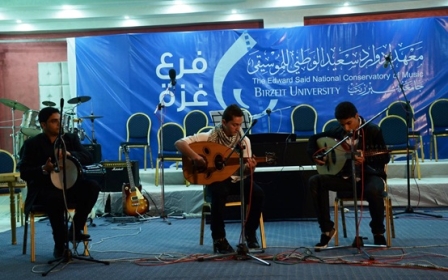Youth theatre in the heart of Gaza
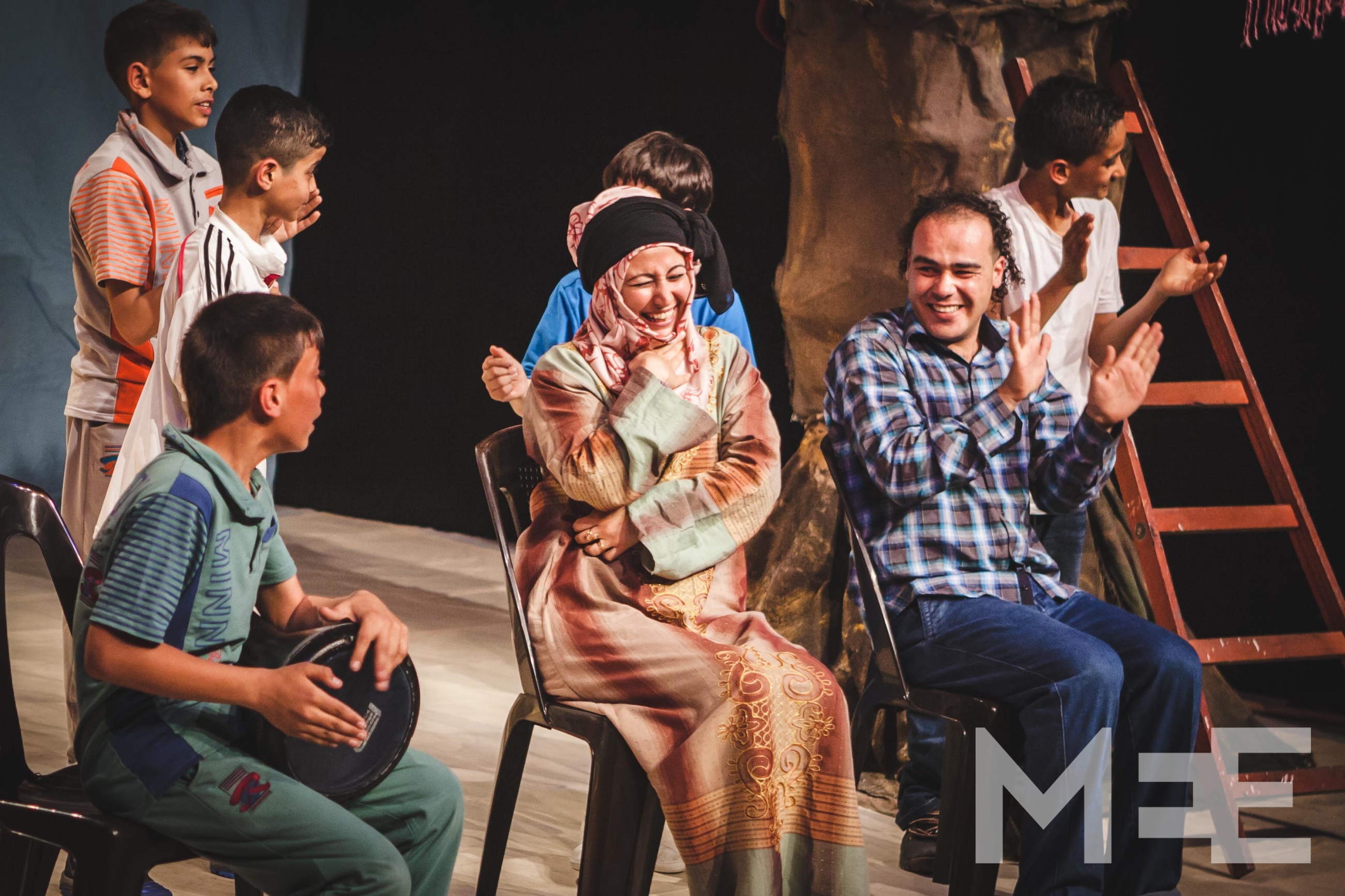
GAZA CITY - The air inside the theatre has grown thick and humid as a packed house of patrons, parents and fellow students take their seats. The air conditioner has been switched off so as not to interfere with the acoustics. Beyond the din of chatter, backstage is a frenzy of directors, actors and stagehands hurriedly locating props, making final costume adjustments with the kind of excited eagerness that marks a show’s opening. Puppets, sailors, farmers, footballers, men dressed as women and vice versa all find their places and await the raising of the curtain on the opening of a new three-day review, 10 Ways to Know Us, a vignette of ten small plays portraying life in the Gaza Strip.
The plays are a creation of the directors, writers, students and actors of Theatre Day Productions (TDP), a children’s theatre located in the heart of Gaza City.
Opening night features the first three of 10 plays, each written by their respective directors, in conjunction with visiting international artists from Holland. The plays were individually workshopped by TDP staff in five separate locations throughout the Gaza Strip.
Following the initial workshop phase, ideas were developed further during a five-day festival, wherein 10 plays were selected from a list of 15.
Though exaggerated and extremely humorous in parts, the plays display a sobering authenticity in their respective pathos. The first of the three, The Lady in the Tree, centres on a poor family in Gaza who must coax their mother down from a tree, in which she has sought refuge after the death of a child. Though tragic in its subject matter, the lengths that the family goes to in order have their loved one returned to them, including having the husband dress in women’s clothing and unsuccessfully trick his wife down, are portrayed with a great deal of levity, eliciting laughter and applause from a packed house. In the end, it is the children that are able to get their mother down and return to normal life.
The second play, Between the Desert and the Sea, deals with two disparate groups of friends, fishermen and Bedouin (a minority group within Gaza), respectively, each living separately and each dissatisfied with the lot that fate has allocated them. The Bedouin are fed up with the dry and dusty aridness of the desert and dream of a life at sea. The fishermen, haunted by the loss of a loved one at sea, wish to escape to what they assume will be a less complicated and more fulfilling lifestyle in the desert. After meeting briefly on their respective journeys and exchanging gifts, they soon find their new lives confusing and deeply unsatisfying, before meeting once more and embarking on a journey to Gaza where, as the play puts it, “the desert and the sea meet”.
“Gaza has historically been a place for different peoples to meet,” said Rafat al-Aydeh, Theatre Day Production’s artistic director. “It has historically been a place for people to meet, from Egypt, Jordan, Lebanon, et cetera. Gaza provides a station for those people. People pass through, but it belongs to them all.”
The third and final play of the day is The Boys Who Can’t Sit Still, a play dealing with bored young men who seek means towards self-assertion and expression.
“These are the kids of Gaza,” Rafat continued. “They have energy; they want to spend that energy, in good or bad ways. Sometimes they can or can’t understand the rules of society, but they’re kids… kids want to show that they are kids, they have energy, they can think, they have questions, they can ask questions, and we need (to provide them with) good answers.”
Guiding the hyperactive energy of the children of Gaza seems an appropriate subject, as it forms a large part of Theatre Day Production's mission.
Theatre Day Productions began just over 20 years ago, a discombobulated company of artists in Gaza who sought to establish a theatre presence in the Palestinian Territories. Amongst them was Jackie Lubeck, a Brooklyn-born theatre director who, along with partner Jan Willems, decided they wanted to establish a children’s theatre and do drama with a certain richness, “not balloons and make-up nonsense”, as Lubeck put it.
“We had the idea that... a person could be an actor, and at the same time a drama teacher, using the tools of acting, expression and theatre to use all of one’s senses. When you teach acting as a process, and not as a result, which is typically the case with children, then you can also empower kids,” said Lubeck.
The company started small with a class of just eight students, but after a successful project in conjunction with the UN agency for Palestinian refugees (UNRWA) the company found itself with over 100, who were then divided into first, second and third years.
Lubeck stated that their company works with the children to teach them how to express themselves, to use their emotions and their imagination to convey their thoughts to others, adding: “You can make children feel better about themselves… we make a space where everyone is equal, where their teacher is not their dictator.”
The class structure is built on the aforementioned structure of equality. Introductory classes are organised in a circle, with each student responding to questions like “What makes you crazy?” with answers ranging from the child’s father to a neighbour, or a pet, etc.
“Their stories are a reflection of the lives that they lead … When you talk about your own life, you are going to bump into the reality of living under occupation, an open air prison that is poor and bombed regularly where you can’t leave… It’s exciting to see children work through the psychological effects of what they go through via self-expression,” Lubeck told MEE.
Training consists of acting, improvisation and direction exercises, and students must create an original production at the end of their first and second years. Students in the course of their final year will usually put on three plays - one original, one improvised, and an adapted play that is relevant specifically to Gaza. As the students learn their craft, they also learn skills related to leading drama workshops themselves.
Graduating students must then build a play entirely on their own, utilising classes of younger students. Out of a remaining student population of 60 - half male and half female, about four or five will be graduating this year.
Once their studies are completed, many choose to stay on as actors, directors and teachers at the school.
“I came to Theatre Day Productions through 'Kids for Kids Programme' when I was 16 years old,” said Mohammed Ewaida, 30, former student and current director of The Boys Who Can’t Stand Still.
“The most important thing is that a child participates and speaks out the things which are inside him through stories. That they try. And that they are accepted by others around them. We stress the importance of acceptance,” explained Ewaida. “We have a responsibility of catching their life stories. The most important thing is to build trust with the children and to break the barriers between them.”
Since graduating in 2013, he has directed numerous projects before embarking on 10 Ways to Know Us, alongside other graduates now teaching at the school. Half of the directors involved with the project are female.
For the students, TDP fulfils a dual role as both a training ground and an after-school club, where burgeoning young artists learn and create with other like-minded students.
“My favourite part (of being involved with TDP) is the rehearsals, especially the days where we come to the theatre,” said Mohammed, 14, after a performance in The Lady in the Tree. “We get notes, and those notes help us learn things about life, to express ourselves freely.”
“Before I began participating in theatre programmes, I just didn’t like to speak and to communicate with people a lot,” said Noor, 15, an actor featured in The Boys Who Can’t Stand Still. “I used to be very shy, and it was difficult for me to even approach two people… when my teacher used to ask questions during the lessons, there were times where I knew the answer but I was too shy to put my hand up and to answer. But now I act in front of 100, 200 people, so I’m no longer shy!”
Noor continued, cracking a handsome, confident grin, “Nowadays if know the answer (in class) I just put my hand up and get on with answering.”
It is this sort of empowerment that the theatre’s artistic director, Rafat al-Aydeh, believes lies at the core of the theatre’s appeal. “Personally, I am trying to see how my people can have their freedom in their own hands. How they can be empowered, say what they want to say, do what they want to do, they can say yes or no, and not (automatically) obey anyone. This is what I want to do for my people.”
The company has received positive reactions abroad as well as at home in Gaza, where pieces produced at TDP have toured at selected venues throughout Europe.
“We are showing who we are, and I think that it is so important that they see a different side of this country, a different face than they see in the media. They really get the humanity of the people of Gaza and Palestine," said al-Aydeh.
Al-Aydeh hopes that TDP can help further empowerment in the wider community, adding: “I can show that these people want to live. Find their life. These are people that smile, that like to smile, to build their lives, that have energy to build their lives with other people (regardless of) colour, religion, politics, et cetera. People need people."
New MEE newsletter: Jerusalem Dispatch
Sign up to get the latest insights and analysis on Israel-Palestine, alongside Turkey Unpacked and other MEE newsletters
Middle East Eye delivers independent and unrivalled coverage and analysis of the Middle East, North Africa and beyond. To learn more about republishing this content and the associated fees, please fill out this form. More about MEE can be found here.


